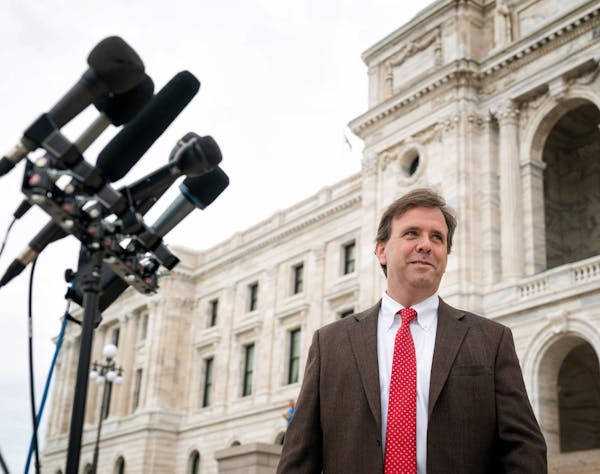The U.S. Supreme Court opened the door for widespread sports betting across the country with its ruling earlier this week that struck down a federal law that made it illegal in most states.
There are tons of things that still need to be sorted out, but even so the decision has already sparked a wide range of opinions and emotions.
I have two relative concerns about the impact — one obvious and one more subtle.
The obvious one is what an expansion of gambling might mean to our social fabric. While I hardly imagine cities will become gambling copies of the nightmare portrayed in Back to the Future Part II — a future, by the way, that portrayed the year 2015 so even that is in the past — there are legitimate reasons to limit sports betting. Countless laws are in place not just to protect us from our own most sinister ideas but also to merely shield us from our mediocre collective judgment.
That said, freedom in any capacity comes with responsibility. I think most Minnesotans could handle being able to wager freely on sporting events. The model works in Europe, and it could work here.
The more subtle tug on society, though, is the continued proliferation of distractions in our society — with sports as a leading culprit. At some point in our fairly recent history, sports (and pop culture, video games, home improvement and several other things) crossed the line from pleasant diversions to tools we immerse ourselves in as a means to more completely detach from the reality of everyday life.
Maybe you could argue that distractions are needed now more than ever, but I would argue that avoidance is not part of a healthy culture and that the things we think are making us happy are really making us less happy — or at least less well — in the end.
BUT: You did not come here for my dime store dissertation on America in 2018. You read the headline and connected to my most pressing question, and admittedly more basic and selfish one: What impact might this ruling have on the classic Las Vegas weekend?
To be clear, the immediate impact is probably not much. Most states will take a while to figure out how they want to proceed with this — Minnesota included — but within five years it is estimated that more than half of states will have legalized sports betting in some form.
Here's the thing, though: I'm going to Vegas next month as part of an annual road trip to see baseball games with friends for the first time in several years, and a big part of the reason my group chose to route this year's trip through Sin City was so we could lay down some bets.
Nevada, most of you know, is the exception to the "most states" part of the law struck down this week by the courts. For my entire adult life (and more), you could go to Nevada (usually Vegas) and bet on just about any sporting event.
In the digital age, of course, it's still relatively easy to wager illegally. The American Gaming Association — which has a horse in this race, so to speak — estimates that Americans wager $150 billion illegally every year. And people still find their way to Vegas in droves.
Sure, gambling isn't the only reason to go to Vegas (or so I've been told). What happens, though, when betting becomes more mainstream — when you don't have to plan a special weekend or break a law to gamble on sports?
My guess is the energy of Las Vegas will still carry a certain appeal. In Minnesota it's legal to play black jack, poker and slot machines and also to bet on horse racing, but I rarely do any of those things here even though they're a short drive away.
But if you add sports wagering to that mix … I don't know. I have a feeling the Vegas experience will be fundamentally altered for a lot of people in years to come.

Can the Vikings find long-term running back solution in the draft?

Wild's season had roster issues; expect more of the same next year

'Tension and pressure' mount as Twins lose on walk-off homer
![Naz Reid (11) of the Minnesota Timberwolves Wednesday, March 27, 2024, at Target Center in Minneapolis, Minn. ] CARLOS GONZALEZ • carlos.gonzalez@](https://arc.stimg.co/startribunemedia/TGYNEKQCYNH5VEPCXSJODRMDDM.jpg?h=91&w=145&fit=crop&bg=999&crop=faces)
Naz Reid's path to breakout stardom featured mentor unlike any other

